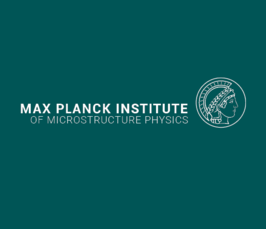Quantum anomalous Hall effect in magnetic topological insulator multilayers
- Datum: 26.10.2021
- Uhrzeit: 15:00
- Vortragende(r): Cui-Zu Chang
- Dept. of Physics, Pennsylvania State University
- Ort: Online

A central theme in condensed matter physics is to create and understand new exotic states of matter. One recent example is the quantum anomalous Hall (QAH) state. The QAH effect can be considered as a zero magnetic field manifestation of the
integer quantum Hall effect, which can be realized by time-reversal symmetry breaking in a topologically non-trivial system. A QAH system carries spin-polarized dissipation-free chiral edge current. Therefore, the QAH effect may have a considerable
impact on future electronic and spintronic device applications for ultralow-power consumption. In 2013, the QAH effect was observed in the Cr-doped topological insulator (TI) thin films for the first time [1]. Two years later in a near-ideal system, V-doped TI, contrary to initial negative prediction from first-principle calculations, a high-precision QAH effect was demonstrated [2]. In this talk, I will briefly talk about the route to the QAH effect in magnetically doped TI films/heterostructures. I will focus on our recent progress on magnetic TI multilayer heterostructures from the axion insulator physics [3] to tuning the Chern number in QAH insulators [4]. In the last part of my talk, I will discuss interesting physics and potential applications enabled by the QAH insulators with high tunable Chern numbers.
References
[1] Chang et al, Science 340, 167(2013).
[2] Chang et al, Nature Mater. 14, 473(2015).
[3] Xiao et al, Phys. Rev. Lett. 120, 056801 (2018).
[4] Zhao et al, Nature 588, 419 (2020).